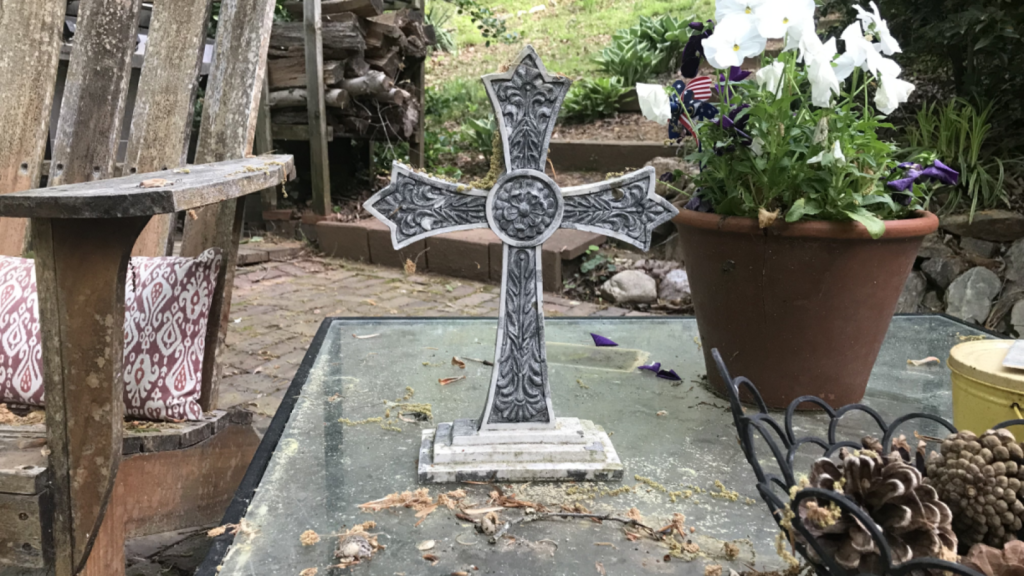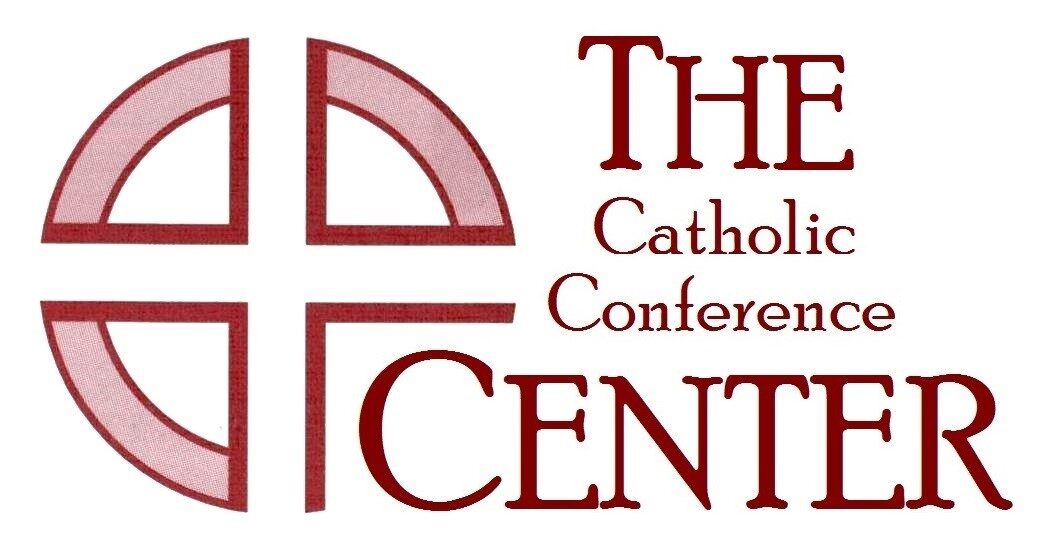
Reflection by Deacon Scott D. Gilfillan
While Mack and I went for a hike, my wife washed all the pollen off of the outdoor furniture. (In fairness, I had already cut the grass and planted seeds in the garden.) This time of year, just looking at the pollen makes me sneeze, so I was grateful she took on this task.
While she was working and I was hiking, I began to ponder. What is the spiritual equivalent of pollen? One of many answers is guilt, especially guilt of the past. Pollen accumulates over time. So does guilt. Pollen can mar the beauty of everything it covers. Guilt can both mar the inner beauty and the way a person presents him or herself to the world. Like pollen, guilt can have an adverse effect on a person’s health and well-being. They both might bring about puffy, watery eyes.
Some of the guilt that clings to us is through no fault of our own. It comes from having to make one of life’s difficult choices. For instance, when my dad was living his final days, I had to choose between being with my family or being with him. I rightly chose to be with my family, but ever since felt a little guilty about not being able to be with him. People make these tough decisions all the time, between two equally high values and having to decide who or what comes first. Is it the job? The spouse? The parents? The children? Or the self? Even after making the correct choice, it’s hard not to carry around a certain level of regret for not being able to choose both, to be everything to everyone.
Then there’s the guilt that comes from making a huge mistake. Some of these distant transgressions continue to haunt me in the present. For these, I wish I had a ‘do-over’, which I know will never come. This guilt from past transgressions is like the especially sticky pollen. It disfigures everything else in my life. The more I carry around, the dirtier I feel. I begin to forget the true color shining beneath this film.
Guilt, just like pollen, every once and while need a good cleansing. If you think about it, that’s what Easter is all about. Through his death and resurrection, Jesus frees us not just from death, but from the power the guilt of the past has over us.
Simon Peter provides all of us with some hope. There is indeed a way to wash away the guilt from the past. Before the crucifixion, he denied Jesus not once, but three times. He was given two ‘do-overs’ and missed them both. Even after hearing about the miraculous appearances of Jesus, he was still covered with a hazy layer of guilt. So much so that instead of going into the world and boldly proclaiming the Easter message, “He lives!”, he decided to go back to his old way of life. He says flatly to the other disciples, “I’m going fishing.” He fishes all night and doesn’t catch a thing. In his state of guilt, there is no life, no purpose, no meaning, and no fruitfulness.
But Peter’s life was transformed by an early morning breakfast with Jesus on the shore of the Sea of Tiberias. Jesus knew that if Peter were to live as God intended him to live he had to first remove this thick layer of guilt that he was dragging around. Jesus began the cleansing with a simple question: “Do you love me?”
The question redirects Peter’s focus from his own failures to Jesus. Peter was gazing at his navel thinking of all the times he had failed, all the hurts he had caused, all of the people he had disappointed. Jesus says in essence, “I know all that! There is only one question that matters. Do you love me more than these? Do you love me more than these past hurts, mistakes, and guilt?”
Peter answered, “Yes, Lord. I love you”. Acknowledging the cleansing power of God’s love is the first step. Having entered this threshold of love as one enters a carwash, Jesus gave Peter the cleansing action: “Feed my sheep…. tend my lambs.” As simple as this command is, Jesus invited Peter to a radical reorientation of his life. He invited Peter to take his focus away from self and especially self-pity and live for others.
Jesus knows all of the difficult decisions you and I have had to make in life. He also knows our worst mistakes. He knows that we’re not meant to go through life covered in a film of guilt. His response is to ask the same question: “Do you love me more than these?” Do you love me more than all of your regrets of the past? If your answer is yes, then he invites you to enter into the cleansing love of God by tending his lambs and feeding his sheep.
Who in your life needs tending and feeding right now?
